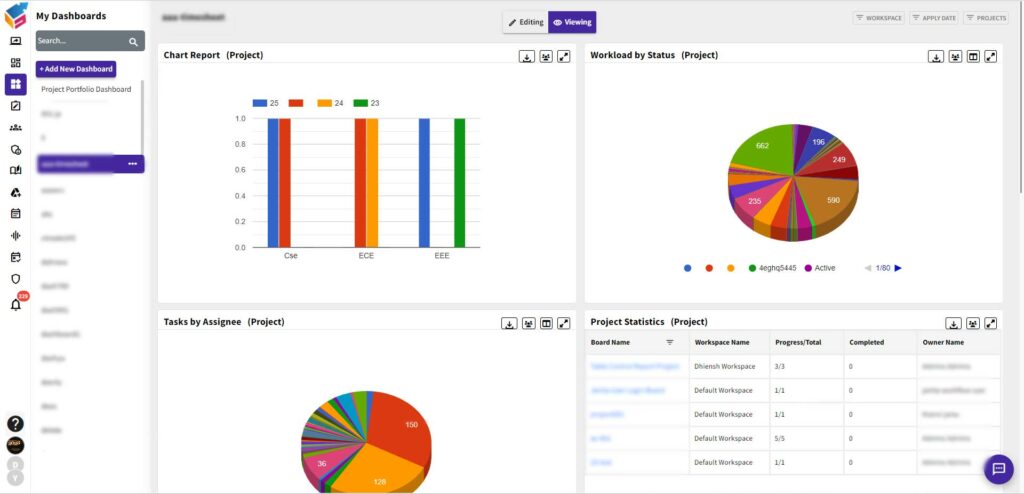Table of Contents
Project management is a crucial aspect of running a successful business. It helps you plan, organize, and execute projects effectively, leading to improved productivity and profitability. However, as with any process, there are certain pitfalls that can impede the success of a project.
10 Project Management Pitfalls
In this blog, we’ll discuss 10 common project management pitfalls and how to avoid them.
Failing to Define Clear Objectives and Goals
One of the most common project management pitfalls is failing to define clear objectives and goals. This can lead to confusion and miscommunication among team members, causing delays and hindering progress.
To avoid this, you must define a clear project scope, goals, and objectives. Project management tool will give everyone involved a clear understanding of what they are working towards and how their efforts contribute to the overall success of the project.
Underestimating Time and Resource Requirements
Another common pitfall is underestimating the time and resource requirements of a project. This can result in delays and additional costs, causing frustration and dissatisfaction among stakeholders.
To avoid this, you must thoroughly evaluate the time and resource requirements of a project, taking into account all necessary steps and tasks. Resource management software will help you create a realistic timeline and allocate resources effectively.
Lack of Communication and Collaboration
Effective communication and collaboration are key to the success of any project. A lack of these can lead to misunderstandings, miscommunications, and inefficiencies, slowing down progress and hindering the success of the project.
To avoid this, you must establish clear lines of communication, encourage collaboration among team members, and ensure that everyone is on the same page. Team collaboration tool will help to foster a positive and productive work environment, leading to better results.
Ignoring Risks and Uncertainties
Ignoring risks and uncertainties can be a major pitfall in project management. This can lead to unexpected problems and difficulties, causing delays and impacting the overall success of the project.
To avoid this, you must identify potential risks and uncertainties and put contingency plans in place. Project management software will help you to quickly and effectively address any issues that may arise, ensuring that the project stays on track.
Overreliance on Technology
While technology can be a powerful tool in project management, overreliance on it can be a major pitfall. This can result in a lack of personal interaction and collaboration among team members, causing delays and hindering progress.
To avoid this, you must strike a balance between technology and personal interaction, ensuring that everyone is working together effectively.
Failing to Prioritize Tasks
Another common pitfall is failing to prioritize tasks. This can lead to confusion and inefficiencies, causing delays and hindering progress.
To avoid this, you must prioritize tasks based on their importance and urgency, ensuring that the most critical tasks are completed first. Task management tools will help you to allocate resources effectively and ensure that the project stays on track.
Inadequate Planning and Preparation
Inadequate planning and preparation can be a major pitfall in project management. This can result in delays, increased costs, and a lack of focus, hindering the success of the project.
To avoid this, you must thoroughly plan and prepare for each project, taking into account all necessary steps and tasks. Project planning template will help you to allocate resources effectively, stay organized, and ensure that the project stays on track.
Failing to Adapt to Change
Another common pitfall is failing to adapt to change. This can result in delays and inefficiencies, hindering the success of the project. Failing to adapt to change can lead to project delays and reduced quality.
Projects are dynamic and can change quickly. Project managers must be prepared to adapt to changes and make adjustments to the project plan as needed.
Lack of proper project monitoring and control
A lack of proper project monitoring and control can result in project delays and increased costs.
Project managers must continuously monitor and control the progress of the project. This involves tracking project tasks, deadlines, and budget and making adjustments as needed.
Unclear project timeline
A project timeline is essential to ensure that tasks are completed on schedule and that the project stays on track. Failing to manage the project timeline can result in project delays and increased costs.
Project managers must use project timeline template and create a clear and realistic project timeline that includes all project tasks and deadlines.
How Can Yoroproject Help to Avoid these Pitfalls?
Yoroproject can be a valuable project management tool in helping project managers avoid common pitfalls and improve the chances of project success. With its range of features, our project tracking software software can support project managers in areas such as planning, execution, risk management, communication, collaboration, and monitoring.

For example, project management software can help project managers create detailed project plans and timelines, ensuring that all tasks and deadlines are accounted for. It can also provide tools for risk management, allowing project managers to identify and assess potential risks and put in place mitigation strategies.
Moreover, Yoroproject can support communication and collaboration, making it easier for project managers to keep all stakeholders informed and to share information and ideas. It can also provide project management templates for resource allocation, allowing project managers to ensure that the right people, equipment, and materials are available when needed.
Conclusion
Whether you are a seasoned project manager or just starting out, it is important to have a good understanding of the different types of charts available and to use them effectively in your projects. By doing so, you will be able to make better decisions, communicate more effectively, and ultimately, deliver more successful projects.
Effective planning, clear goals, and risk management are key components of successful project management. Project managers must ensure that all team members understand their roles and responsibilities and that effective communication and collaboration are in place.
Proper resource allocation, stakeholder engagement, and the ability to adapt to change are also critical to project success.
Finally, proper project tracking tool is essential to ensure that projects are completed on time, within budget, and to the desired quality.




